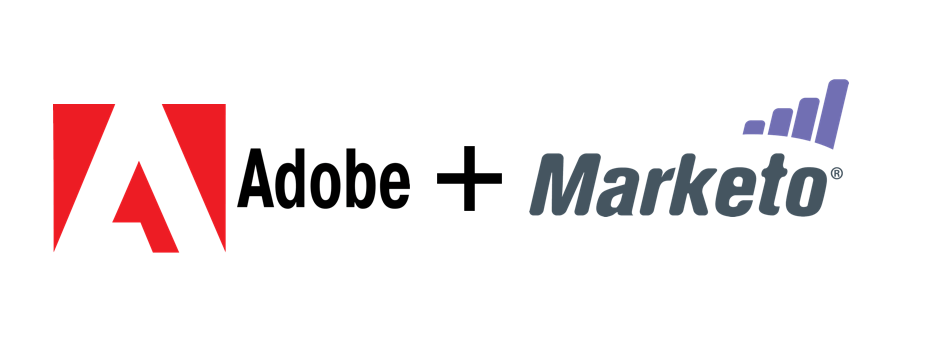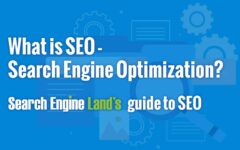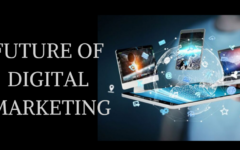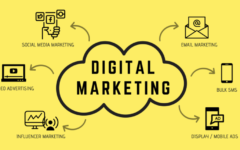What are the Best AI and Marketing Automation Tools?
December 7, 2023 2023-12-18 12:37What are the Best AI and Marketing Automation Tools?
What are the Best AI and Marketing Automation Tools? – In today’s dynamic business environment, the use of advanced technologies such as
artificial intelligence (AI) and marketing automation tools has become imperative for client organizations focused on competing and successfully executing their marketing strategies. Here we explore some of the best AI and Marketing Automation tools that have been proven to help transform the marketing landscape.
What are the Best AI and Marketing Automation Tools?
Artificial intelligence (AI) and marketing automation solutions have become indispensable in the
dynamic world of digital marketing for improving productivity, simplifying procedures, and providing more individualized client experiences. Because AI can evaluate large datasets, it makes data-driven
decision-making easier by offering insightful information about the tastes and behavior of consumers. This enables marketers to design ads that are both highly targeted and pertinent.
Marketing automation tools complement AI by automating repetitive tasks, enabling marketers to focus on strategy and creativity. These tools often include features such as email marketing, lead nurturing, and customer segmentation. Through automation, businesses can deliver timely and personalized content, nurturing leads throughout the customer journey.
The synergy between AI and marketing automation is particularly evident in predictive analytics. AI algorithms can predict customer behaviors, allowing marketers to anticipate needs and tailor campaigns accordingly. This predictive capability significantly improves the efficiency of marketing efforts, ensuring that resources are allocated to the most promising opportunities.

AI-powered chatbots have also completely changed how customers interact with businesses. These chatbots, which are integrated into messaging apps and websites,
converse with users in real time, answering their questions right away and assisting them in moving through the sales funnel. In addition to increasing customer happiness, this frees up human resources for more difficult jobs.
The finest artificial intelligence (AI) and marketing automation tools in the cutthroat world of
digital marketing are those that offer strong analytics, scalability to meet changing business needs, and seamless integration into current workflows. Marketers are depending more and more on these tools as technology develops to help them deal with the complexities of the digital world and ensure that their plans are more effective, data-driven, and customer-focused.
HubSpot
As a feature-rich and adaptable inbound marketing and sales platform, HubSpot distinguishes apart by
providing a range of tools that enable companies of all sizes to draw in, interact with, and satisfy consumers. HubSpot, which was founded in 2006 by Brian Halligan and Dharmesh Shah, is now widely recognized as the industry leader in inbound marketing.
Fundamentally, HubSpot offers a comprehensive platform that addresses numerous facets of sales, marketing, and customer support. It is especially appealing to businesses looking for a consolidated solution
to manage their customer relationship lifecycle because of its user-friendly interface and all-in-one approach.
A significant advantage of HubSpot is its extensive content management system (CMS),
which enables users to easily develop and manage content for websites. In addition, the platform performs exceptionally well in search engine optimization (SEO), email marketing, and social media management

HubSpot’s marketing automation features make lead nurturing and customer interaction more efficient. To continuously improve their methods, marketers can segment audiences, develop customized ads, and track performance indicators. The platform’s CRM (Customer Relationship Management) system facilitates the seamless flow of information
between marketing and sales teams, fostering collaboration and ensuring a unified approach to customer interactions.
HubSpot’s Sales Hub provides teams with tools for lead tracking, deal management, and automated communication in the sales domain. The Sales Hub helps sales professionals focus their efforts and close deals more successfully
by integrating with well-known email systems and offering real-time insights.
Moreover, HubSpot’s Service Hub closes the customer experience circle by providing resources for ticketing, customer support, and feedback administration. This makes it possible for companies to provide outstanding after-sale support and create enduring bonds with their clients.
As the marketing technology landscape evolves, HubSpot continues to innovate, regularly updating its platform with new features and capabilities.
Mailchimp
In the realm of email marketing, Mailchimp has become a trailblazer by offering companies a flexible
and easy-to-use platform for designing, organizing, and tracking email campaigns. Mailchimp, which was founded in 2001 by Ben Chestnut and Dan Kurzius, began as a basic email marketing service
and has now grown to become a comprehensive marketing automation platform with millions of customers globally.
The main factor attracting people to Mailchimp is its user-friendly interface,
which can be used by both inexperienced and seasoned marketers. With its drag-and-drop editor, the platform makes it possible for users to create aesthetically pleasing emails,
so even people without a lot of design experience can produce campaigns that appear professional.
Beyond email marketing, Mailchimp offers statistics, social media integration, and audience management. Through audience segmentation based on multiple parameters, the platform enables businesses to communicate with customers in a targeted and personalized manner.

One of Mailchimp’s best features is marketing automation, which enables customers
to create automated workflows that are triggered by particular events or actions. This streamlines the customer journey and increases overall productivity. Examples include drip marketing, targeted product recommendations, and automatic welcome emails.
The platform’s analytics and reporting features offer useful information about the impact of email campaigns. Users can track open rates, rates of clicks, and other important metrics to assess the impact of their marketing initiatives. Marketers may test out various features and improve campaigns for better results via Mailchimp’s A/B testing capabilities.
Besides from its fundamental functions, Mailchimp offers e-commerce functionalities that enable companies to
integrate their online stores and monitor sales right within the dashboard. As such, it’s an advantage for businesses looking to link their marketing and e-commerce activities together successfully.
Adobe Marketo
As a component of the Adobe Experience Cloud, Adobe Marketo is a potent marketing automation tool that companies
can use to engage customers, create leads, and increase sales by implementing smart marketing techniques. Marketo, which Adobe acquired in 2018, has developed into a complete B2B marketing system that integrates analytics, personalization, and automation.
Adobe Marketo’s core values are lead management and customer interaction over the course of the marketing lifecycle. A variety of tools are available on the platform for planning, carrying out, and evaluating marketing campaigns. With the use of tools for email marketing, lead nurturing, account-based marketing, and analytics,
marketers can provide their audiences with material that is both relevant and unique to them.
Marketo’s powerful lead management system is one of its best qualities. Sales teams may concentrate their attention on the most potential prospects by using the platform to
evaluate and prioritize leads according to a variety of factors.

Collaboration and alignment are fostered by marketing and sales teams’ smooth communication made possible by
integration with Customer Relationship Management (CRM) platforms like Salesforce.
Adobe Marketo enhances marketing automation procedures by utilizing machine learning and artificial intelligence. Personalized content recommendations, automated campaign optimization, and predictive analytics for identifying possible high-value leads are all included in this. With the help of these AI-powered tools, marketers can now make data-driven choices and continuously improve their tactics to get superior outcomes.
The platform’s account-based marketing (ABM) features enable businesses to target and engage key accounts strategically. Marketers can create personalized campaigns tailored to specific accounts, ensuring a more personalized and effective approach to B2B marketing.
In addition to its marketing automation prowess, Adobe Marketo provides robust analytics and reporting tools.
Chatbots
Businesses’ interactions with their audience are being completely transformed by chatbots, which have become extremely effective tools for user engagement, marketing, and customer care. The artificial intelligence (AI)-driven automated conversational bots improve customer experience and operational efficiency by offering prompt support and responses.
One of chatbots’ main benefits is that they are always available, which enables companies to provide customers with immediate assistance and information. As a result, there is an increase in client loyalty in addition to improved customer satisfaction and prompt enquiries answered. Chatbots function as virtual assistants with a range of functions, whether they are used on social media, messaging apps, or websites.
These are now able to comprehend and react to customer inquiries in a way that is human-like thanks to machine learning algorithms and natural language processing (NLP).

Over time, these AI-driven systems get better at comprehending context and responding appropriately as a result of ongoing learning from user interactions.
These are being used more and more in customer service to answer standard inquiries and commonly requested questions. This allows human agents to concentrate on more complicated problems that need individualized attention. This minimizes operating expenses for organizations while also cutting response times.
Moreover, chatbots play a pivotal role in lead generation and marketing. They can qualify leads, guide users through product selections, and even assist in completing transactions. This not only streamlines the sales process but also enhances the overall user journey, leading to improved conversion rates.
Despite their numerous advantages, effective chatbot implementation requires thoughtful design and ongoing refinement. Striking the right balance between automation and human touch is crucial to ensure a positive user experience. As AI technologies continue to advance, the future of chatbots holds the promise of even more sophisticated and personalized interactions,








